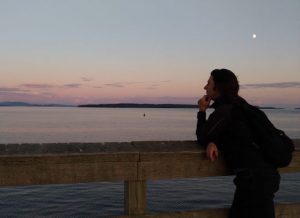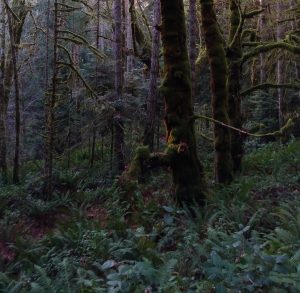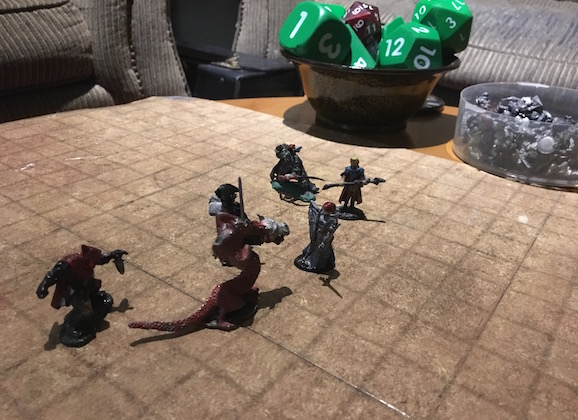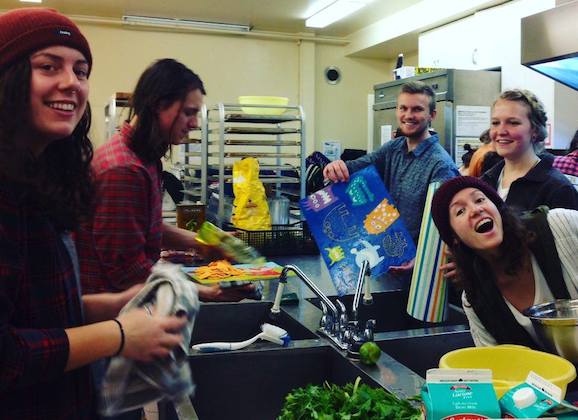How Indigenous Studies Shaped My Life
 In a previous post, I explained how I was really fortunate to have the opportunity to find my career as a language teacher through studying Pacific and Asian Studies at UVic.
In a previous post, I explained how I was really fortunate to have the opportunity to find my career as a language teacher through studying Pacific and Asian Studies at UVic.
Another way UVic has guided my life has been through Indigenous Studies. However, before we even get into how Indigenous Studies shaped my life, I think it’s important to share a little bit about my history and how Indigenous Studies became a part of my life first.
The story starts when I was born in Vancouver. Due to a number of factors, my biological mother wasn’t able to take care of me. I was put into the foster care system and adopted as a one-year-old. We didn’t have much growing up, but my parents always taught me that all people are equal, which for me was the greatest gift of all.
I had a pretty ‘average’ lower-middle class upbringing in Langford with my parents working hard to make ends meet. We didn’t have a luxurious life, but we always had pets, a roof over our heads, and dinner on the table.
There’s a whole backstory behind my adoption that falls out of the scope of this blog post, but one day when I was around 12 years old, I found out about my adoption, and a few years later (maybe 14 or 15 years old) I was contacted by the ministry through special circumstances. In this rare opportunity we were able to connect with my biological family much sooner than is normally allowed. In Canada you normally can’t contact your biological family until the age of eighteen.
Beautiful nature on the Saanich Peninsula
It was at this moment that I learned I was half native and my biological father was from the Siksika Nation in Alberta. I hadn’t heard about any of this before, but it was a paradigm shift for me.
I hadn’t even considered that I could be native, but a few years after that I had an opportunity to travel to the Siksika Nation with relatives. On my journey to the Siksika Nation, I learned a lot about the realities of being native in Canada and some aspects such as the residential schools which have permanently affected lives. It was a difficult experience sometimes because of the hard truths I had to learn, but this experience was the beginning of a new perspective.
Beautiful nature heading towards Lake Matheson
Fast forward to a few years later, and I had finally entered UVic as an undergraduate student. I had been taking some general Pacific and Asian Studies classes in my first semester, and also had an opportunity to take a class about Indigenous Studies through the LE,NONET Project.
The LE,NONET Project is a pilot project aiding indigenous students through funding and apprenticeships at UVic which was so successful that they have recently started offering a bursary to indigenous students under its name again. That first class inspired me to take Indigenous Studies as part of my degree.
Fall scene on campus at UVic
After taking Indigenous Studies, I feel strongly that many of the ideas which are taught at a university level should be taught in the Social Studies curriculum in high schools; after all, native history is a part of Canadian history, isn’t it?
On top of that, I think that everyone would benefit from taking a course in Indigenous Studies which is something that many institutions are now considering. At the very least it teaches us to think critically about the stories which we are told in news and books, but more than likely this kind of material will help us be a little more considerate to all of the different contexts and backgrounds from which we come from.
Stories and truths may change over time, but through increasing acceptance of different perspectives, we can all become better as a society. What does indigenous studies mean to you? Do you feel that you learned enough in your education?
For me personally, one reason why I’m in the Education program at UVic now is because I feel that there is room to teach about our collective history from many different perspectives, and this includes Indigenous Studies. It doesn’t deny the other threads which exist; information is information, and anything that we can use to enhance our knowledge is for the better.
The more we include different voices into the mix and work with each other in society, the better we can all learn and grow as individuals.







